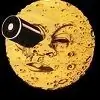Beware of the long post..
(originally posted on the BollyWHAT? forum)
I was watching the song Kahe Chhed Mohe and it hit me: the lyrics of this song are intended to hint to the viewer that there was, indeed, more than hugging going on down by the river in the previous song, More Piya. Bear with me here while I expatiate.
Someone commented on the BollyWHAT? forum that they believed More Piya (MP) to be a highly stylized depiction of what was actually a sexual encounter. Don't remember who it was, but now I agree. Think about it: the Kahe Chhed Mohe (KCM) song, which is the next song after MP, is an exact retelling of the scene we saw in MP with one new detail: Radha, aka Chandramukhi, claims that Krishna "stole away her honor."
This explains a lot. It explains why the song makes Devdas so incredibly uneasy, so agonized that he jumps up at the end and declares that he shouldn't have sent the letter and he's going back home. The song is throwing in his face the crime he committed: sleeping with Paro (an act with very serious social ramifications for her) and then abandoning her. Furthermore, if the version which Chandramukhi sings is the true, "uncensored" version of what happened in MP, it also explains why Devdas flinches when Chandramukhi says "Ish." The first time I watched this film, I thought he reacted so violently because he associates that word with Paro. Now I've watched it again, I realize that a lot of other characters say that word. Chandramukhi, however, says it in a context in which its meaning is "Shame on you!", and Devdas flinches because he DOES feel shame -- not, I argue, because he's simply left Paro, but because of what he did *before* he left her.
Take a look at Kaahe Chhed Mohe's lyrics. There are some other similarities I think are significant, which I comment on below.
| Krishna caught hold of me and suddenly | |
| mukh chuum le... | he kissed my face... |
| sar se morii chunarii ga'ii ga'ii ga'ii | From my head, my scarf fell; |
| sar se morii chunarii ga'ii sarak sarak sarak | my scarf went slipping from my head, |
| sarak... | slipping... |
| kaahe chheR chheR mohe | Why does he tease me so? |
| barbas more laaj linhii laaj linhii laaj linhii | By force he stole away my honor, |
| barbas more laaj linhii | by force he stole away my honor! |
| brinda shyaam maanat naahii.n... | Krishna will not heed me... |
| kaa se kahuu.n mai.n apne jiya ki sunat naahii.n maa'ii | To whom can I speak my heart when he does not listen? Oh, mother! |
| kaahe chheRe chheRe mohe... | Why does he tease me? |
| kar pakaRat chuuRiyaa.n sab kaRkii kaRkii kaRkii... | He caught me and all my bangles broke, broke, broke... |
| o maa'ii | O, mother! |
| brinda shyaam maanat naahii.n... | Krishna will not heed me... |
Here are some other explicit references, in KCM's lyrics, to the events that happen in More Piya. One: describing Radha's face as "radiant as lightning." In MP, lightning illuminates her face several times. In KCM, we hear of Radha being restrained by Krishna, just as she was in More Piya. She's carrying a pot as well, which Krishna breaks, just as Devdas knocks it from Radha's head.
Now, I know all these are pieces of common Radha-Krishna imagery, but to repeat the identical theme so explicitly, in songs that occur *back-to-back*? Clearly we're intended to see the connection, and treat it as significant (more significant, I mean, than simply another example of the Radha-Krishna analogy applicable to both pairs, Paro-Devdas and Chandramukhi-Devdas).
Another point of note: the lines "kaa se kahuu.n mai.n apne jiya ki sunat naahii.n maa'ii" or "to whom can I speak my heart when he does not listen? Oh, mother!" seem more suited to Paro's voice than to Chandramukhi, particularly the maternal reference, seeing as Paro's mother is her succor during her time of need... Again, though, I'm assuming the choice of identical Radha-Krishna imagery back-to-back is deliberate and pointed. In support of my case, this film does not exactly reek of sloppiness. SLB went out of his way to create what he hoped would be a modern classic.
































12